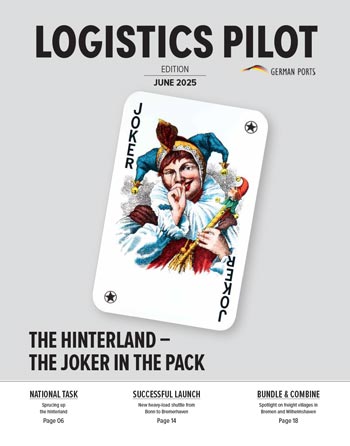Only those who throw off their own cultural influences can clearly recognise a foreign culture without any blurring.
The culture in Estonia, Latvia and Lithuania may be similar, but each country attaches great importance to its own independence. Business travellers are therefore best advised to avoid using the collective term Baltic States during their stay.
Photos: Montage:AdobeStock/nikitausm, Shutterstock/Gau Mon, olya/Freepik; trivero Kommunikation
Awareness of one’s own background is one of the keys to successful intercultural encounters. Another is an appreciation for of all things unfamiliar. But what does this mean when you set out on your first business trip to the former Soviet states of Estonia, Latvia and Lithuania? “Treat people the way you would like to be treated,” says Tobias Koch, a communication scientist who, among other things, has published an audio book on business etiquette in Estonia, Latvia and Lithuania. This always applies in principle, of course, but in a special way here as well: “Respect is very important in all three countries, because back in the time of the Soviet Union as mini appendages of it, they received little appreciation.” The need to break away from this overpowering state at the end of the 1980s was correspondingly great. The enormity of the will for independence and freedom was shown by the human chain formed on 23 August 1989 by two million Balts through the then Soviet republics of Estonia, Latvia and Lithuania, to demonstrate for their independence. To this day, the three cultures are marked by a high degree of national consciousness and solidarity with their homeland. But be careful: “One shouldn’t talk of the Baltic States,” emphasises Koch. “The people in these countries value their national identity highly and have emancipated themselves economically at high speed through digitisation; all three countries are paragons in this respect.”
But don’t get too personal right away
However, digitisation and in particular the start-up mentality that is anchored in the minds of many younger people should not hide the fact that a too casual approach does not go down well. In Estonia, for example, caution is advised at first when it comes to personal topics: “Family topics are far too private on first contact,” Koch points out. A far better approach would be to discuss more harmless topics like sports – and, of course, basketball, which is very popular there, for example. “Electronic voting, e-voting, and electronic tax, e-tax, are also well suited as warm-up topics, as the people there are very proud of them.” On the other hand, it would be an absolute mistake to confuse the capitals of the three countries: “That would be like stepping on a landmine,” states the expert. However, there are no particular pitfalls for Germans: “Germany is valued far more than Russia.” And in general it is helpful to point out similarities.
The countries also cooperate economically, not least in order to remain politically and culturally independent. Networking is also very important in the three states: “Everyone knows everyone,” states Koch. And that doesn’t just apply to Latvia as the smallest of the three countries. “Especially in Lithuania, personnel policy is dominated by who you know; this is still intergenerationally anchored in the culture, so to speak, because without relationships it was very difficult to survive in the Soviet Union.” Although the Balts may feel themselves to be Estonians, Latvians and Lithuanians overall, they see their future more in Europe than in Russia.
Communicating in English is best
The fact that not everyone speaks Latvian or Lithuanian, and that Estonian as a Finno-Ugric language is particularly difficult to learn, is something that the Balts are quite aware of, of course. That’s why they appreciate it all the more if visitors learn a few words in the national language – although no one expects perfection. “English is spoken fluently almost everywhere and makes for the best common denominator,” states Koch. Some, including older people, also speak Russian, of course.
Regardless of the language, conversations about beer are always a good starting point in Lithuania. “The Lithuanians love beer, and it really is their national drink par excellence,” states Koch. Another ice-breaker is to get to know the respective country and its customs in advance. “The aim should be to find something that the country or company in question can do really well, that they do faster and better than the competition,” explains Koch. “It can just be a small thing but should also come across authentically, without overdoing it, of course.” If you can convey that you have understood that a small country can be more agile than a larger one, you are also likely to score points for sympathy.
Lucidity and dispassion go down well
However, drawn out small talk is not required in any of the three countries: “You shouldn’t rush into things, but you can – without being pushy – clearly formulate what your intentions are and state your own goals in concrete terms. Other than in Russia, directness and a business-like approach go down well. “You can score points here with integrity and by not rambling on,” states Koch. “That actually suits the German mentality and work ethos very well and forms a good foundation.” However, there is one special thing you should note here: “You should know that in Lithuania a compromise can be interpreted as a sign of weakness,” states Koch. “That comes from the time of the party cadre where whoever conceded lost.”
In terms of cuisine, the proximity to Nordic cultures is again evident. “The cuisine is more Scandinavian,” Koch reports. More proximity to the northerners also exist with regard to the mythological background, for example Christmas. Likewise, vodka does not have the importance it has in Russia. Quality is more important than quantity when it comes to souvenirs. In the end though, Estonia, Latvia and Lithuania come down to being three entirely independent cultures. (cb)

“Respect is very important in all three countries.”
Tobias Koch is a trained carpenter and head of a communications agency in Munich with a master’s degree in communications science.
Logistics Pilot
The current print edition - request it now free of charge.







